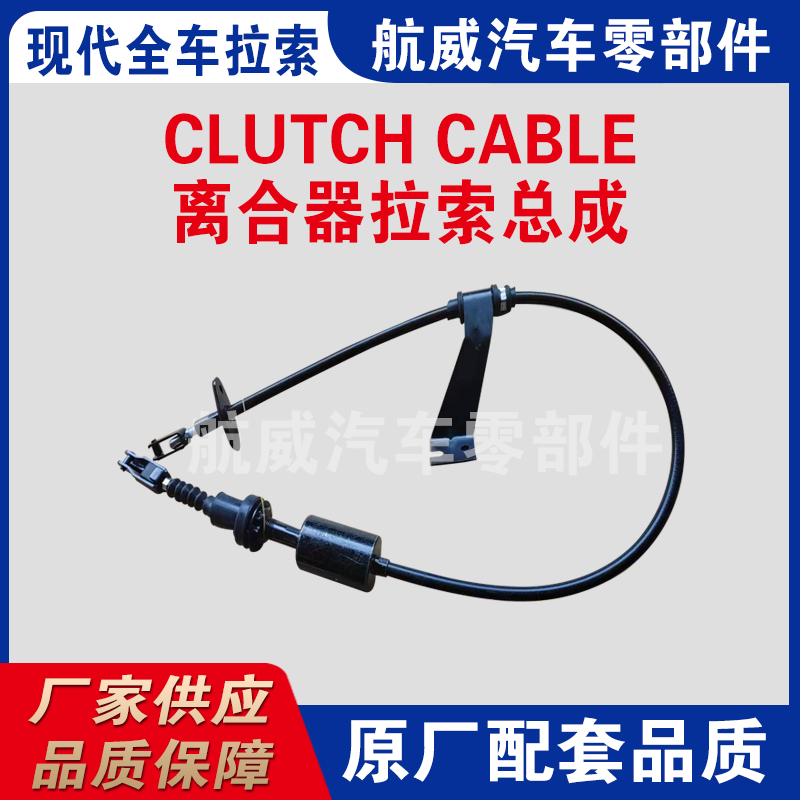hydraulic clutch line
Understanding Hydraulic Clutch Lines Importance and Maintenance
A hydraulic clutch line is an integral component of the hydraulic clutch system found in many modern vehicles. The hydraulic system uses fluid pressure to engage and disengage the clutch, allowing for smooth operation of the transmission. Without a functional hydraulic clutch line, the entire system can fail, leading to significant problems with vehicle performance.
How Hydraulic Clutch Lines Work
The hydraulic clutch system typically consists of several key components the master cylinder, the slave cylinder, the clutch line, and the clutch itself. When the driver presses the clutch pedal, the master cylinder generates hydraulic pressure, pushing fluid through the clutch line to the slave cylinder. The slave cylinder then activates the clutch mechanism, allowing the driver to change gears smoothly.
The hydraulic clutch line, therefore, must be capable of withstanding high pressure while ensuring a tight seal to prevent any leaks. Common materials for clutch lines include rubber and metal, although most manufacturers trend towards using metal reinforced rubber for durability and flexibility.
Common Issues with Hydraulic Clutch Lines
Despite their robust design, hydraulic clutch lines can encounter various issues that may compromise their functionality. Here are some common problems to watch for
1. Leaks One of the most significant issues with hydraulic systems is fluid leakage. If the hydraulic clutch line develops a leak, it can lead to a decrease in hydraulic pressure, making it difficult or impossible to disengage the clutch.
2. Air in the Line If air gets into the hydraulic system, it can cause the clutch to engage or disengage erratically. This can lead to difficulties in shifting gears and may result in increased wear on the transmission components.
3. Corrosion Over time, hydraulic lines can become corroded, especially if they are exposed to moisture or road salt. Corrosion can weaken the lines and lead to leaks or complete failure.
hydraulic clutch line

4. Blockages Dirt, debris, or degraded fluid can create blockages within the hydraulic system, preventing proper fluid flow and function.
Maintenance Tips for Hydraulic Clutch Lines
To ensure the longevity and efficiency of hydraulic clutch lines, regular maintenance is essential. Here are some tips
- Regular Inspection Periodically check the hydraulic lines for any signs of wear, corrosion, or leaking fluid. If you notice any issues, address them promptly to avoid further damage.
- Fluid Quality Ensure that the hydraulic fluid is clean and at the appropriate level. Contaminated or low fluid levels can lead to performance problems.
- Bleeding the System If you suspect air has entered the system, it’s important to bleed the hydraulic clutch system. This will remove any trapped air and restore proper function.
- Professional Servicing If you are not comfortable performing maintenance on hydraulic components, it is advisable to seek professional help. Mechanics can provide thorough inspections and replace any damaged components as needed.
Conclusion
Hydraulic clutch lines play a crucial role in the operation of a vehicle's clutch system, enabling seamless gear shifts. Understanding their function and maintaining them properly can prevent costly repairs and ensure optimal vehicle performance. Regular checks and addressing issues promptly can extend the life of your hydraulic clutch system, keeping your driving experience smooth and trouble-free. Whether you are a seasoned car enthusiast or a daily commuter, paying attention to your hydraulic clutch line can make a significant difference in the reliability of your vehicle.
-
Workings of Clutch Pipe and Hose SystemsNewsJun.04,2025
-
The Inner Workings of Hand Brake Cable SystemsNewsJun.04,2025
-
The Secrets of Throttle and Accelerator CablesNewsJun.04,2025
-
The Hidden Lifeline of Your Transmission Gear Shift CablesNewsJun.04,2025
-
Demystifying Gear Cables and Shift LinkagesNewsJun.04,2025
-
Decoding Clutch Line Systems A Comprehensive GuideNewsJun.04,2025
